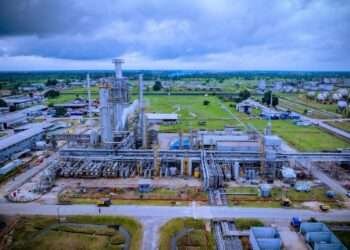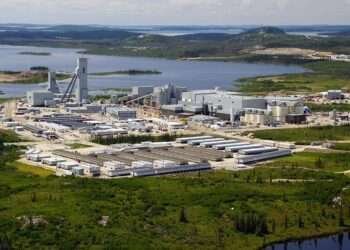Sunon Asogli Power Ghana Limited has resumed operations at its 560-megawatt power plant following the receipt of emergency financial support from the government.
The plant, which had been out of service due to financial constraints, recommenced operations on Monday, November 25, 2024, at 3 PM. The power producer announced the development in a press release, highlighting the critical role played by key government officials in securing the funds necessary to restart operations.
The support came after weeks of deliberation and high-level interventions aimed at addressing Ghana’s ongoing energy challenges.
“We wish to express our sincere appreciation to the Minister for Finance, Mohammed Amin Adam, and the Minister for Energy, Herbert Krapa, for their intervention to release emergency funding to address our critical financial need.”
Sunon Asogli Power Ghana Limited
Special acknowledgment was also given to Vice President H.E. Dr. Mahamudu Bawumia for his personal involvement in ensuring that the payments necessary to revive the power plant were expedited.
According to the statement, Dr. Bawumia’s role was instrumental in averting further delays in restoring operations, which were critical to meeting Ghana’s power demand.
The resumption of operations comes amidst ongoing efforts by Sunon Asogli to restructure its financial and operational agreements to ensure sustainable operations.
According to the press release, the company submitted the final version of its Restructuring Terms Sheet to the Ministry of Finance and the Electricity Company of Ghana (ECG) in August 2024.
The document outlines key measures aimed at enhancing the stability of Ghana’s energy sector while balancing the financial responsibilities of all stakeholders.
“We are confident that a win-win solution that will ensure the stability and reliability of Ghana’s energy sector will be achieved,” Sunon Asogli stated.
Central to these restructuring discussions is the company’s insistence that ECG adheres to the terms of their Power Purchase Agreement (PPA). This includes timely financial payments and settlements to guarantee uninterrupted operations.
The power producer emphasized that the ECG’s financial obligations are critical to avoiding future disruptions in energy supply.
A Lifeline for Ghana’s Power Grid

The 560-megawatt capacity of the Sunon Asogli plant makes it one of the largest contributors to Ghana’s power generation capacity. The resumption of its operations is expected to significantly improve electricity supply across the country, alleviating pressure on the national grid and supporting economic activities.
The plant’s output will help bridge gaps in demand and ensure more consistent power availability for industries, businesses, and households.
The shutdown of Sunon Asogli’s 560MW plant had disrupted power supply in several parts of the country, straining the national grid and inconveniencing businesses and households alike.
“We deeply regret the impact of our shutdown,” the company said, while reassuring citizens of its renewed commitment to maintaining stable power supply.
The company further highlighted the importance of collaboration between power producers, the government, and utility companies to avoid future power outages, stressing that financial sustainability across the sector is key to long-term reliability.
The return of the Sunon Asogli plant to active service comes at a critical time as Ghana grapples with periodic power shortages.
Reliable electricity is a cornerstone of economic growth, particularly in developing economies like Ghana. The return of the Sunon Asogli plant is expected to have a ripple effect on industries, boosting productivity and fostering confidence among investors.
With the plant back online, businesses can expect fewer interruptions, enabling smoother operations and contributing to overall economic growth.
The government’s proactive response to Sunon Asogli’s financial challenges underscores its recognition of energy as a critical driver of national development.
However, the successful implementation of the company’s restructuring plan will be a litmus test for the government’s ability to address systemic inefficiencies in the energy sector.
READ ALSO: Disinformation and Misinformation: A Threat to Ghana’s Democracy





















